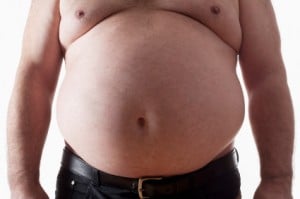Do You Need to Lose Weight?
Need to lose weight? You are not alone. Nearly two-thirds of Americans are now overweight. What has changed the most over the last two or three decades in our lifestyles leading to this overweight epidemic? We have become a nation that overconsumes pre-packaged and processed foods. These foods are high in calories and contain high fructose corn syrup and trans fats. They are also high glycemic. All of this contributes to weight gain.
So if you need to lose weight, you need to change the way you eat. There’s no getting around this, as there is no magic bullet to lose meaningful weight and keep it off.
A second contributing factor to weight gain has been a decline in general physical activity, but this does not explain excessive weight gain as much as our changing dietary habits. But, become more physically active is a key component to any sensible weight loss program.
A third factor to weight gain, and one that is not fully recognized by the medical community is declining hormone levels.
Getting Started by Eating Right
Eat low glycemic foods. These include most fruits and vegetables. Low glycemic foods do not raise levels of insulin excessively. Insulin is a necessary hormone, but if insulin levels get too high (as they do with high glycemic foods), it encourages the body to store more calories in the form of fat and makes it difficult to burn calories from fat. Many Americans today go through the day with insulin levels that are constantly elevated.
High fructose corn syrup is found in virtually all pre-packaged foods, from frozen dinners, salad dressings, and condiments to soft drinks. Introduced in the 1980s the ever-increasing consumption of high fructose corn syrup directly parallels the ever-increasing number of overweight Americans. High fructose corn syrup converts into fat once it reaches the liver. It also blunts the hormones that suppress appetite in response to a meal. What this means is that we become hungry again shortly after having eaten, so we overeat.
Stoke Metabolism Through Exercise
 Too often weight loss is approached only from the perspective of consuming fewer calories. What isn’t realized is that it is also possible to kick-start metabolism so that you burn more calories even at rest. You can stoke your metabolism through exercise, but not just any exercise.
Too often weight loss is approached only from the perspective of consuming fewer calories. What isn’t realized is that it is also possible to kick-start metabolism so that you burn more calories even at rest. You can stoke your metabolism through exercise, but not just any exercise.
To jumpstart your metabolism you must perform exercise beyond the aerobic zone and cross into what’s called your anaerobic threshold. What does this mean? It means performing short bursts of activities, sometimes called high-intensity interval training.
This type of exercise will elevate your metabolism higher and keep it elevated longer than the typical aerobic exercises (see “Exercises to Lose Weight”). Better results are obtained if you perform these short burst exercises at near-maximal exertion.
Strength training also improves metabolism by building muscle. Muscle burns more calories than fat. So the more muscle you have the more calories you burn.
Increasing Hormone Production Through Exercise
People who need to lose weight need to have their hormone levels checked. A major reason we gain weight as we age is that our hormone levels begin to decline at age 30 or so. Hormones determine our metabolic rate and make it easier to build and maintain muscle. A major bonus to strength training and high-intensity interval training is that they both can boost growth hormone and testosterone production. The results are better in males than females. Females benefit from both of these hormones as well, though. Growth hormone has consistently been shown to improve body composition. Both testosterone and growth hormones promote muscle development.
Have your sex hormone, DHEA, growth hormone, and thyroid levels measured if you struggle to maintain an ideal weight, and consider hormone replacement therapy not just if levels are low, but if they are less than optimal.
Vitamin D Levels
Finally, a study published in the January 2010 of Diabetes showed that individuals low in vitamin D had increased waist circumference and higher serum insulin levels and suggests that vitamin D deficiency may be responsible for slow and steady weight gain.
If you need to lose weight you will find results if you follow the above recommendations.
Related articles include “Natural Metabolism Boosters“, “Zig-Zag Your Way to Easy Weight Loss”, and “How to Lose Weight”.

